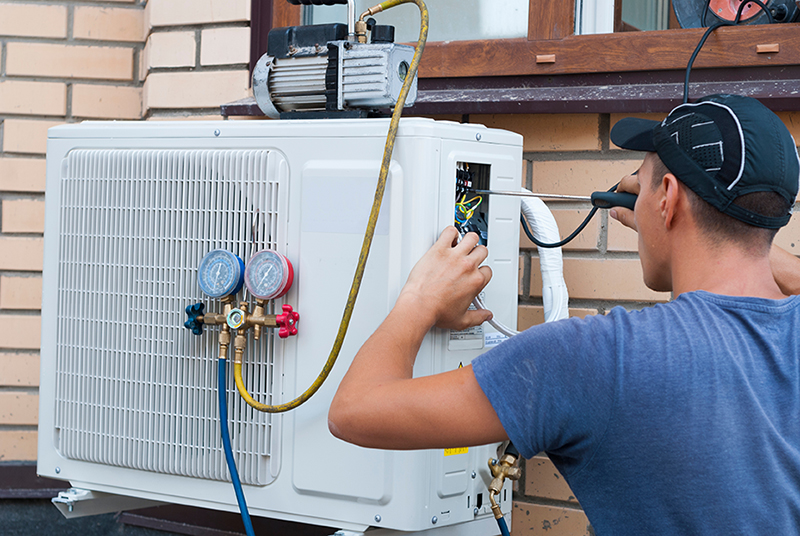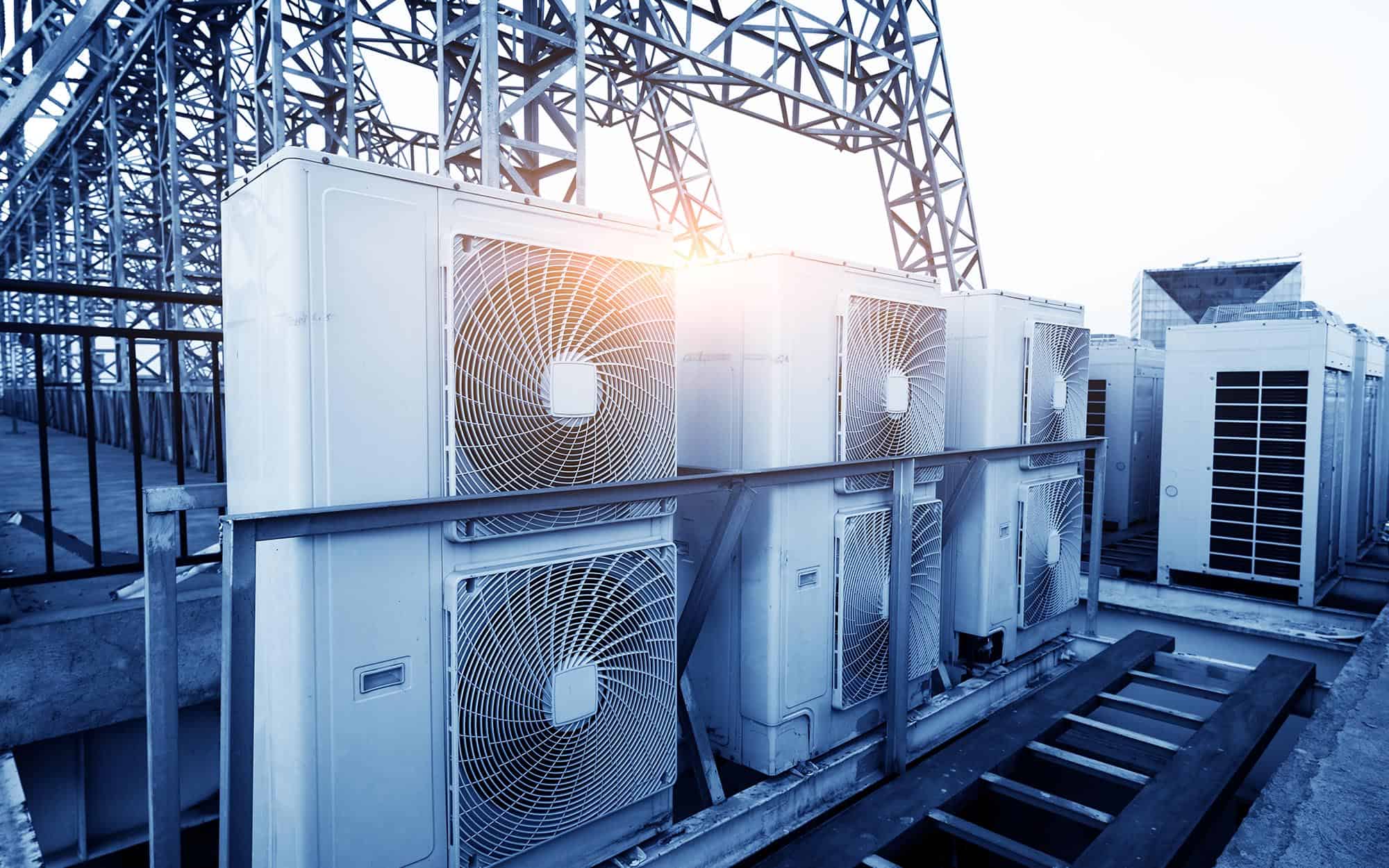Your Guide to Choosing the Right HVAC System for Your Requirements
Choosing an ideal HVAC system is a crucial decision that can substantially influence convenience and power efficiency in your home. Various factors must be weighed, including the size of your home, regional environment problems, and specific home heating or cooling down needs. Furthermore, comprehending the different sorts of systems offered and their energy scores can assist assist your option. By assessing these aspects thoroughly, you can prevent common pitfalls. What key considerations should you prioritize to guarantee your financial investment satisfies both instant and long-term needs?
Understanding Cooling And Heating System Kind
When selecting a cooling and heating system, it is vital to comprehend the various kinds available to fulfill your particular needs. The main categories of cooling and heating systems include central air systems, ductless mini-split systems, heatpump, and furnace systems.
Air conditioning systems are developed to cool down several areas utilizing ductwork to disperse conditioned air. They are optimal for larger homes needing regular temperature control. Ductless mini-split systems, on the various other hand, offer adaptability and efficiency, as they permit zoning capabilities, allowing specific room temperature level regulation without the requirement for ductwork.
Warmth pumps run by moving warmth rather than generating it, making them an energy-efficient option for both heating and cooling. On the other hand, heating system systems make use of burning to generate warmth, utilizing either oil, power, or gas.
Each system has distinctive benefits and factors to consider, consisting of installment needs, upkeep, and general expenses. Comprehending these types will help homeowners make informed choices based upon their certain requirements, climate, and budget constraints, ultimately ensuring optimum convenience and effectiveness.
Examining Energy Performance
Power efficiency is an essential aspect in the selection of an A/c system, as it directly affects both utility expenses and ecological sustainability. The Seasonal Energy Performance Ratio (SEER) and the Heating Seasonal Efficiency Factor (HSPF) are crucial indicators for air conditioning systems, representing their effectiveness over a typical cooling and home heating period, respectively.
Furthermore, look for systems that have made the power STAR label. This qualification signifies that the devices fulfills strict energy performance standards set by the U.S. Environmental Defense Agency. Consider the system's variable-speed innovation, which permits for more effective procedure by readjusting the result to match demand, even more improving power financial savings.
Moreover, proper insulation and duct sealing can substantially affect the system's total efficiency. In summary, selecting an energy-efficient a/c system not just decreases your power costs yet also adds to a more sustainable environment, making it a vital factor to consider in your investing in procedure.
Assessing System Dimension
Picking the ideal dimension for a cooling and heating system is crucial to ensuring optimal efficiency and performance. A small system might have a hard time to preserve preferred temperature levels, leading to enhanced deterioration, higher energy intake, and lessened convenience. On the other hand, a large system can result in rapid biking, which not just triggers ineffectiveness but additionally influences moisture control and air quality.
To assess the ideal sizing, it is essential to conduct a lots computation, which considers factors such as the square video of the area, insulation levels, window dimensions, and regional environment problems - hvac. This computation assists determine the British Thermal Units (BTU) required for heating & cooling. Furthermore, it is essential to make up certain requirements, such as the number of passengers and the visibility of heat-generating home appliances

Setup Expenses and Budget Plan
A thorough understanding of installation expenses is necessary for businesses and homeowners taking into consideration a new cooling and heating system. The complete expense of installation can vary widely based upon several elements, including the kind of system, the complexity of setup, and the location of the property. On average, setup costs can range browse around this web-site from $3,000 to $10,000, depending upon the system's size and efficiency.
When budgeting for a HVAC system, it is critical to consider not only the preliminary installment costs however likewise any extra expenditures that might arise, such as ductwork alterations, electric upgrades, or authorizations. Furthermore, it is a good idea to get several quotes from certified heating and cooling service providers to guarantee affordable rates.
Homeowners need to also consider the potential long-lasting financial savings associated with energy-efficient systems. While the in advance prices may be greater, energy-efficient versions can cause significant savings on energy expenses gradually.

Upkeep and Long Life Considerations

Proper upkeep consists of regular evaluations, filter replacements, and cleaning of coils and air ducts (hvac). Ignoring these tasks can cause decreased effectiveness, raised energy costs, and early system failing. Homeowners must additionally consider the schedule of service contracts, which usually give scheduled maintenance and priority service, guaranteeing that the system stays in peak problem
Longevity varies by system kind; for example, well-maintained central air units can last 15 to twenty years, while important link warm pumps may have a life expectancy of 10 to 15 years. Selecting a system with a strong reputation for dependability, together with purchasing regular maintenance, can dramatically boost the system's resilience. Additionally, selecting higher-efficiency versions might lead to lasting cost savings on power costs, stabilizing the first investment gradually.
Conclusion
Finally, picking a proper cooling and heating system requires mindful factor to consider of various aspects, including system kinds, power efficiency, and size. Examining installment costs and lasting maintenance demands is vital for making sure ideal performance and cost-effectiveness. Involving with cooling and heating experts can supply valuable insights and customized recommendations that straighten with certain heating and cooling requirements. Inevitably, an educated choice will boost comfort and performance in household environments while optimizing power savings.
Picking an ideal A/c system is an essential choice that can substantially impact convenience and energy effectiveness in your home.Energy effectiveness is a vital element in the selection of a HVAC system, as it directly influences both utility prices and environmental sustainability. The Seasonal Power Efficiency Proportion (SEER) and the Heating Seasonal Efficiency Factor (HSPF) are crucial indications for air conditioning systems, representing their efficiency over a regular cooling and home heating period, specifically. Selecting a system with a solid credibility for dependability, along with spending in normal upkeep, can considerably improve the system's durability.In conclusion, choosing a proper HVAC system requires cautious factor to consider of numerous variables, including system types, energy efficiency, and size.